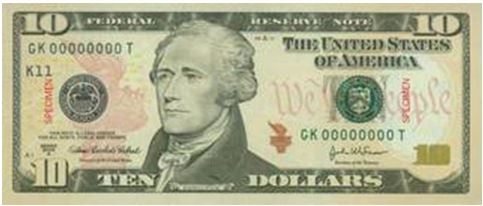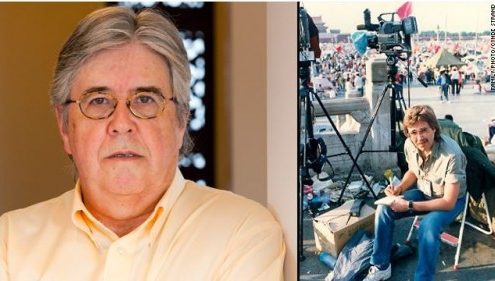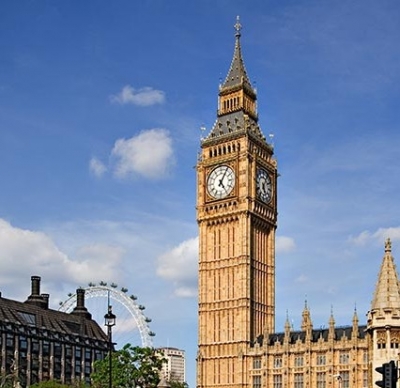
Global Market Comments
July 8, 2013
Fiat Lux
Featured Trade:
(JULY 19 FRANKFURT STRATEGY LUNCHEON),
(THE TWO CENTURY DOLLAR SHORT),
(UUP), (FXY), (FXE), (FXB), (FXC), (FXA), (BNZ), (CYB)
(CNN?S JOHN LEWIS; THE DEATH OF A COLLEAGUE)
PowerShares DB US Dollar Index Bullish (UUP)
CurrencyShares Japanese Yen Trust (FXY)
CurrencyShares Euro Trust (FXE)
CurrencyShares British Pound Sterling Tr (FXB)
CurrencyShares Canadian Dollar Trust (FXC)
CurrencyShares Australian Dollar Trust (FXA)
WisdomTree Dreyfus New Zealand Dollar (BNZ)
WisdomTree Chinese Yuan (CYB)
Come join me for lunch for the Mad Hedge Fund Trader?s Global Strategy Update, which I will be conducting in Frankfurt, Germany on Friday, July 19, 2013. A three-course lunch will be followed by a PowerPoint presentation and an extended question and answer period.
I?ll be giving you my up to date view on stocks, bonds, foreign currencies, commodities, precious metals, and real estate. And to keep you in suspense, I?ll be throwing a few surprises out there too. Enough charts, tables, graphs, and statistics will be thrown at you to keep your ears ringing for a week. Tickets are available for $239.
I?ll be arriving an hour early and leaving late in case anyone wants to have a one on one discussion, or just sit around and chew the fat about the financial markets.
The lunch will be held at a prestigious private club not far for the Botanical Gardens, the details of which will be emailed to you with your purchase confirmation.
I look forward to meeting you, and thank you for supporting my research. To purchase tickets for the luncheons, please go to my online store.
Any trader will tell you the trend is your friend, and the overwhelming direction for the US dollar for the last 220 years has been down.
Our first Treasury Secretary, Alexander Hamilton, found himself constantly embroiled in sex scandals. Take a ten dollar bill out of your wallet and you?re looking at a world class horn dog, a swordsman of the first order. When he wasn?t fighting scandalous accusations in the press and the courts, he spent much of his six years in office orchestrating a rescue of our new currency, the US dollar.
Winning the Revolutionary War bankrupted the young United States, draining it of resources and leaving it with huge debts. Hamilton settled many of these by giving creditors notes exchangeable for then worthless Indian land west of the Appalachians. As soon as the ink was dry on these promissory notes, they traded in the secondary market for as low as 25% of face value, beginning a centuries long government tradition of stiffing its lenders, a practice that continues to this day. My unfortunate ancestors took him up on his offer, the end result being that I am now writing this letter to you from California?and am part Indian.
It all ended in tears for Hamilton, who, misjudging former Vice President Aaron Burr?s intentions in a New Jersey duel, ended up with a bullet in his back that severed his spinal cord. Cheney, eat your heart out.
Since Bloomberg machines weren?t around in 1790, we have to rely on alternative valuation measures for the dollar then, like purchasing power parity, and the value of goods priced in gold. A chart of this data shows an undeniable permanent downtrend, which greatly accelerates after 1933 when FDR banned private ownership of gold and devalued the dollar.
Today, going short the currency of the world?s largest borrower, running the greatest trade and current account deficits in history, with a diminishing long term growth rate is a no brainer. But once it became every hedge fund trader?s free lunch, and positions became so lopsided against the buck, a reversal was inevitable. We seem to be solidly in one of those periodic corrections, which began six month ago, and could continue for months or years.
The euro has its own particular problems, with the cost of a generous social safety net sending EC budget deficits careening. Use this strength in the greenback to scale into core long positions in the currencies of countries that are major commodity exporters, boast rising trade and current account surpluses, and possess small consuming populations. I?m talking about the Canadian dollar (FXC), the Australian dollar (FXA), and the New Zealand dollar (BNZ), all of which will eventually hit parity with the greenback. Think of these as emerging markets where they speak English, best played through the local currencies.
For a sleeper, buy the Chinese Yuan ETF (CYB) for your back book. A major revaluation by the Middle Kingdom is just a matter of time.
I?m sure that if Alexander Hamilton were alive today, he would counsel our modern Treasury Secretary, Jack Lew, to talk the dollar up, but to do everything he could to undermine the buck behind the scenes, thus over time depreciating our national debt down to nothing through a stealth devaluation. Given Jack Lew?s performance so far, I?d say he studied his history well. Hamilton must be smiling from the grave.
 See the Resemblance?
See the Resemblance?
I was deeply saddened by the death of my old friend, CNN Asia correspondent, John Lewis, a legend in television journalism.
I first met John in Tokyo at the Foreign Correspondents? Club of Japan back in 1974, when he was a decorated Vietnam vet from Ohio trying to claw his way into TV, bootstrap style. Personable and easy going, he was one of the few in the club who got along with most of the cantankerous, suicidal, or just plain drunk writers there, and was often the first to step in to stop a fight. In those days you didn?t get fired in this rough and tumble business for punching out competitors.
At my 1977 wedding at the club, John graciously took the pictures because I was too poor to hire a professional. In 1979, rumors spread that this wild man millionaire named the ?Mouth of the South,? Ted Turner, was going to start up a 24 hour news cable channel called CNN, and was looking to hire a full time Asia correspondent. We both jumped at the job, and Lewis won out. Everyone was impressed, but kept their fingers crossed.
I was left part time stringing for NBC news, reporting to the late Bruce McDonald, who had worked his way up from writing for Johnny Carson?s Tonight show to the network producer for Asia, which is a big deal. And you wonder where I got my wicked sense of humor.
I often ran into John in the field, he covering the typhoons, floods, and wars, and me the business angle, which often blended into the same story. So we covered the corrupt Marcos regime in the Philippines, the assassination of Indira Gandhi in India, and the opening up of China. We never missed an opportunity to swap contacts and war stories at dingy, dubious bars from Seoul to New Delhi, and all points in between.
We parted ways in the eighties when my career made a sharp jag to the right with my joining Morgan Stanley in New York. John shot to international fame when he ignored Chinese orders to cease covering the Tianamen Square massacre in 1989, and kept beaming reports abroad until the heavies cut the power off. Gutsy move, John.
I heard that John died of a heart attack at 63. Foreign correspondence did not exactly offer a healthy lifestyle, with all the smoking, drinking, and general carousing that went on. There were also the occupational hazards of the occasional stray bullet, bouts of amoebic dysentery, and stints in jail at the behest of some third world dictator. It was a larger than life existence, but not exactly conducive to a family life, so I moved on. John stuck with it, but what a price! I was appalled when I saw his recent picture. The years had not been kind.
John was one of a dying breed of journalist whose sole interest was to get the story right and get it fast. There was no pandering to a particular political viewpoint, stealth marketing on products, or surreptitious product placement that has regrettably become endemic in the trade today. His was really an old fashioned kind of reporting, almost quaint in its principles.
He will be missed.
Come join me for lunch for the Mad Hedge Fund Trader?s Global Strategy Update, which I will be conducting in London on Monday, July 8, 2013. A three-course lunch will be followed by a PowerPoint presentation and an extended question and answer period.
I?ll be giving you my up to date view on stocks, bonds, currencies commodities, precious metals, and real estate. And to keep you in suspense, I?ll be throwing a few surprises out there too. Enough charts, tables, graphs, and statistics will be thrown at you to keep your ears ringing for a week. Tickets are available for $249.
I?ll be arriving an hour early and leaving late in case anyone wants to have a one on one discussion, or just sit around and chew the fat about the financial markets.
The lunch will be held at a private club on St. James Street, the details of which will be emailed to you with your purchase confirmation.
I look forward to meeting you, and thank you for supporting my research. To purchase tickets for the luncheons, please go to my online store.
I have always considered the US military to have one of the world?s greatest research organizations. The frustrating thing is that their ?clients? only consist of the President and a handful of three and four star generals. So I thought that I would review my notes from a dinner I had with General James E. Cartwright, the former Vice Chairman of the Joint Chiefs of Staff, and known as ?Hoss? to his close subordinates.
Meeting the tip of the spear in person was fascinating. The four star Marine pilot was the second highest ranking officer in the US armed forces, and showed up in his drab green alpha suit, his naval aviator wings matching my own, and spit and polished shoes. As he spoke, I was ticking off the stock, ETF, and futures plays that would best capitalize on the long term trends he was outlining.
The cycle of warfare is now driven by Moore?s Law more than anything else (XLK), (CSCO), and (GOOG). Peer nation states, like Russia, are no longer the main concern. Budgeting for military expenditures is a challenge in the midst of the worst economic environment since the Great Depression.
Historically, inertia has limited changes in defense budgets to 5%-10% a year, but in 2010 defense secretary Robert Gates pulled off 30% realignment, thanks to a major management shakeup. We can only afford to spend on winning current conflicts, not potential future wars. No more exercises in the Fulda Gap.
The war on terrorism will continue for at least 4-8 more years. Afghanistan is a long haul that will depend more on cooperation from neighboring Iran and Pakistan. ?We?re not going to be able to kill our way or buy our way to success in Afghanistan,? said the general. However, the 30,000-man surge there brought a dramatic improvement on the ground situation.
Iran is a big concern, and the strategy there is to interfere with outside suppliers of nuclear technology in order to stretch out their weapons development until a regime change cancels the whole program.
Water (PHO), (CGW) is going to become a big defense issue, as the countries running out the fastest, like Pakistan and the Sahel, happen to be the least politically stable.
Cyber warfare is another weak point, as excellent protection of .mil sites cannot legally be extended to .gov and .com sites. We may have to lose a few private institutions in an attack to get congress to change the law and accept the legal concept of ?voluntarism.? General Cartwright said ?Anyone in business will tell you that they?re losing intellectual capital on a daily basis.?
The START negotiations have become complicated by the fact that for demographic reasons, Russia (RSX) will never be able to field a million man army again, so they need more tactical nukes to defend against the Chinese (FXI). The Russians are trying to cut the cost of defending against the US, so they can spend more on defense against a far larger force from China.
I left the dinner with dozens of more ideas percolating through my mind, which I will write about in future letters.
Dilbert cartoonist Scott Adams argues that you should invest in companies you hate because only the most unprincipled and rapacious firms make the greatest profits.
Moral bankruptcy is a great leading indicator of success, and the best ones can get you to balance your wallet on the end of your nose and bark like a seal, as you buy products that you utterly despise. Companies with the work ethic of a serial killer, like British Petroleum (BP) come to mind, but you can also add other firms to the list, like Goldman Sachs (GS), Citicorp (C), Pfizer (PFE), and Altria (MO).
Adams initially started investing in companies he loved, like Enron, WorldCom, and Webvan, and absolutely lost his shirt. Adams? advice to BP is not to waste money on artificially sincere ad campaigns apologizing, but get us to hate them more. Bring on more dead bird pictures!
Who is Adams about to hate next? Apple (AAPL), because he irrationally craves their products, resents their emotional control over his entire family, can?t get ITunes to work, and is appalled by those aloof black turtlenecks that Steve Jobs used to wear.
Global Market Comments
July 3, 2013
Fiat Lux
Featured Trade:
(JULY 12 AMSTERDAM STRATEGY LUNCHEON),
(IRAN SHOULD FOLD ITS NUCLEAR PROGRAM, OR ELSE),
(PETER F. DRUCKER ON MANAGEMENT)
Come join John Thomas for lunch at the Mad Hedge Fund Trader?s Global Strategy Update, which I will be conducting in Amsterdam, The Netherlands, on Friday, July 12, 2013. A three-course lunch will be followed by a PowerPoint presentation and an extended question and answer period.
I?ll be giving you my up to date view on stocks, bonds, foreign currencies, commodities, precious metals, and real estate. And to keep you in suspense, I?ll be throwing a few surprises out there too. Enough charts, tables, graphs, and statistics will be thrown at you to keep your ears ringing for a week. Tickets are available for $229.
The lunch will be held at a downtown Amsterdam hotel near Nieumarkt that will be emailed with your purchase confirmation.
I look forward to meeting you, and thank you for supporting my research. To purchase tickets for the luncheons, please go to my online store.
?We have 3,500 nuclear weapons left over from the cold war we don?t need, they take 20 seconds to re-aim, we?re not afraid to use them. And by the way, they?re already aimed at you.?
That is the approach James Baker III thinks America should take with Iran, Ronald Reagan?s Chief of Staff and Secretary of the Treasury, and George H.W. Bush?s Secretary of State.
At the same time, we should be talking to the regime in Tehran, while doing everything we can to support the reformers, tighten sanctions, and enlist Europe?s help. Baker does not see a military solution in Iran, even though their potential to create instability in the region is enormous.
This was one of dozens of amazing insights I gained spending an evening chatting with the wily Texas lawyer during an evening in San Francisco. Baker is happy to take on the ?America Bashers,? pointing out that the US still plays a dominant role in the UN, NATO, the IMF, and the World Bank. It still accounts for 25% of GDP, and its military is unmatched. The US spread globalization, and the spectacular growth of China and India is largely the result of open American trade policies, raising standards of living around the world.
But the US can?t take its leadership role for granted. The biggest threats to American dominance are the runaway borrowing and entitlements. US debt to GDP is now over 100%, the highest level since WWII. This is unsustainable, is certain to bring a return of inflation, and unless dealt with, will lead to a long term American decline on the world stage. Massive trade and capital flow imbalances also have to be addressed.
The 80-year-old ex-Marine, who confesses to being the only Treasury Secretary in history who never took an economics class, believes that the advantageous rates that the government now borrows at are not set in stone. Baker is the man who engineered an end to the cold war with a whimper, and not a bang. He thinks that ?even our power has its limits,? and that ?there is a risk of strategic overreach.?
Baker feels that while conditions in the Middle East still look dicey, there is a good chance that we can pull out all our troops, and still leave a stable region. With the US politically evenly divided, Congress has degenerated from debating teams into execution squads, and consensus is impossible. The media are partly to blame, especially bloggers who propagate wild conspiracy theories, as confrontation sells better than accommodation. Regarding the financial crisis, we need to end ?too big to fail? and embark on re-regulation, not strangulation.
All in all, it was a fascinating few hours spent with a piece of living history who still maintains his excellent contacts in the diplomatic and intelligence communities.

























